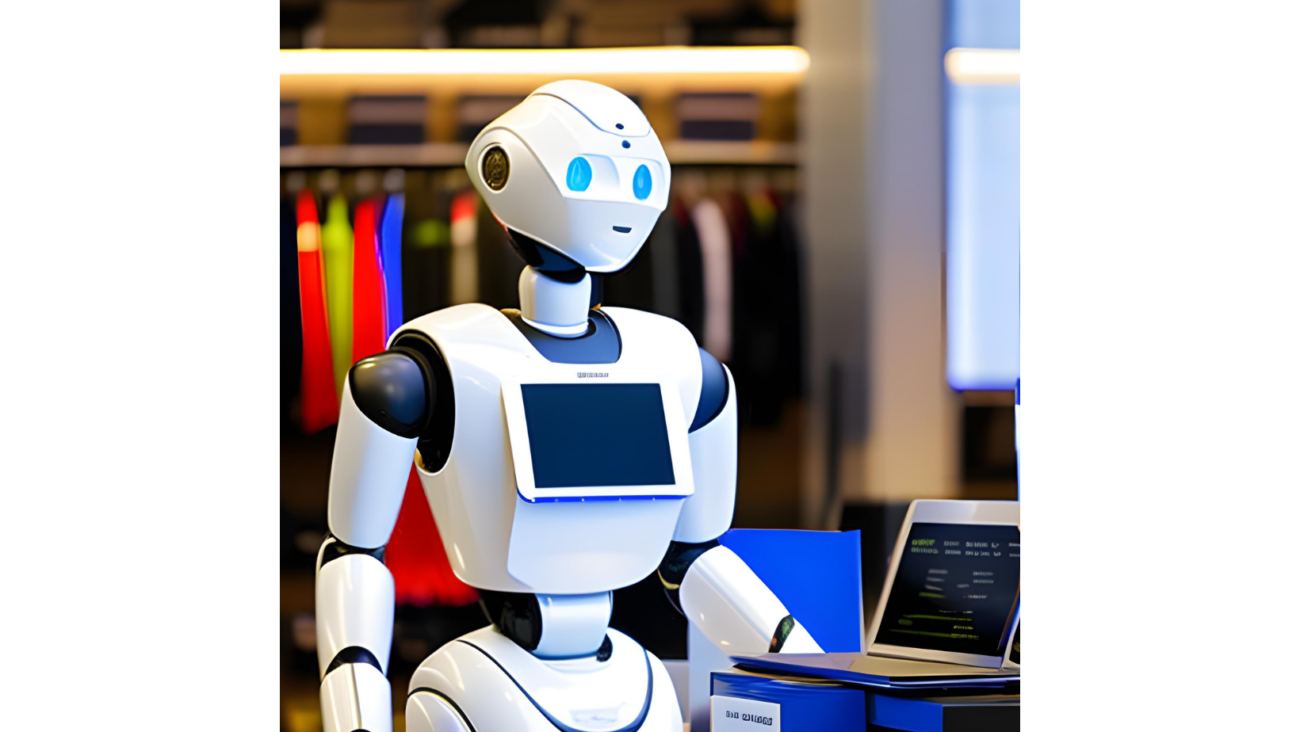AI is rapidly changing the retail industry. AI has been used to automate tasks, improve customer service, and personalise the shopping experience.
The introduction of chatbots is one the major outcome of AI in retail sector. Chatbots are computer programs that can simulate conversations with humans. These are used in customer service applications where they can respond to queries, provide support, and resolve issues. Chatbots can also be used to collect customer data and feedback.
Inventory management is another area where AI is making a significant impact AI-powered devices can track inventory levels in real time using information from cameras and sensors. By using this data, orders can be placed more efficiently, prevent stockouts, and ensure that products are always available when customers need them. Inventory management has become more difficult due to global access to information.
AI is also being used to personalise the shopping experience. On the basis of consumers’ prior purchases and browsing patterns, AI-powered recommendation engines, for instance, can make suggestions for products that customers find interesting. AI is also being used to design tailored marketing initiatives that is leveraging a higher chance of reaching and engaging consumers.
AI-powered visual search allows customers to find products by uploading images or using their smartphone cameras. Customers are more likely to make purchases when using this technology to locate the product that they want instantly. Additionally, AI combined with AR can provide virtual try-on experiences, allowing customers to visualize products in real-time, and proving the shopping experience. Some of the leading adopters of AI and AR include IKEA, Walmart, NIKE, Alibaba, Amazon, Home Depot, L’Oréal, Lego, eBay and Sephora.
Security measures in retail businesses can be improved by using Artificial intelligence-powered video analytics and computer vision technologies. Artificial intelligence can identify shoplifters, identify suspicious activity, and prevent theft by reviewing security footage. In addition to helping in the identification of known offenders, facial recognition technology can warn store security officers in real time.

The global AI in retail market size accounted for $8.41bn in 2022 and it is projected to attain around $45.74bn by 2032. The CAGR for the period 2023-2032 is expected to be 18.45%.

Amazon: Amazon uses Artificial intelligence-powered recommendation systems to suggest products to customers based on their browsing and past purchase. Additionally, customers find and purchase products through voice commands with the help of the Amazon chatbot, Alexa.
Amazon uses an AI-powered system called Fraud Detector to detect and prevent fraud in its transactions. In order to analyse transaction data and identify fraudulent behaviour, such as account takeover and payment fraud, the system uses machine learning algorithms.
Walmart manages its inventory across all of its stores using an AI-powered system called Eden. In order to forecast demand, optimise inventory levels, and cut waste, Eden uses machine learning algorithms to predict demand, improve inventory levels, and reduce waste.
Target uses AI to improve its supply chain management and the overall customer experience. It uses algorithms to predict customer demand, optimizes inventory levels, and plans assortments. Target uses AI-driven robots to automate a variety of functions in its warehouses, including sorting items and restocking shelves.
H&M uses chatbots that are generated by AI to assist customers. Customers can get help from this chatbot with basic questions like sizing, refunds, and order tracking which improves customer service by providing quick and accurate responses.
JD.com relies on automation. It uses AI algorithms to personalize product recommendations and effectively improve delivery routes. In order to automate the picking, packing, and sorting operations and boost operational efficiency, JD.com uses AI in its warehouses.
Alibaba uses AI to manage its supply chain. To estimate demand trends and improve inventory levels, it uses machine learning in its intelligent forecasting system. It uses AI algorithms to improve last-mile delivery and route planning.
Despite of long list of advantage, we see few challenges that retail sector faces when implementing AI:
• Cost: AI technology can be expensive to develop and implement because AI systems require a lot of data to train and operate. This data can be difficult and expensive to collect. Additionally, AI systems must be regularly updated and maintained, which can increase the cost.
• Data: In order to operate and train AI systems, a lot of data is needed. This data can be difficult and expensive to collect. Retailers need to collect data from a variety of sources, such as customer transactions, product reviews, and social media posts which can be unstructured, making it difficult to process and analyse.
• Skill gap: There is a shortage of skilled workers with the knowledge and expertise to implement AI solutions. This might make it challenging for retailers to acquire and retain the talent they require to create and implement AI systems.
• Acceptance: In the retail industry, there is some resistance against the use of AI, especially from workers who may be worried about losing their jobs to automation. Retailers need to address these concerns and communicate the benefits of AI to their employees in order to gain acceptance for these technologies.
Whatever plus and misuses we talk about, today, AI technology continues to develop and is irresistible for any sector advancement. We expect to see even more innovative and disruptive applications of AI in retail in the years to come. Let’s wait and watch!
– Aishwarya Dinesh ( CrispIdea Analyst )
Check out our wide range of equity and industry reports on retail, Click here
Follow our LinkedIn page for more updates




